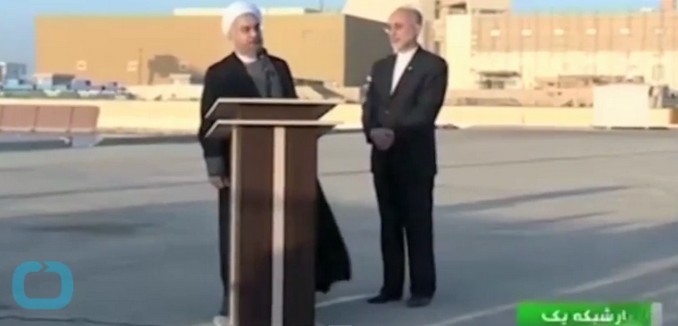According to a report Monday by the Associated Press (AP), in the final years of an agreement with Iran over its nuclear program, restrictions and verification measures would be lifted to “allow it [Iran] to slowly ramp up activities that could be used to make nuclear arms over the last years of the agreement’s duration.” In the final stages of the deal, restrictions would be gradually relaxed giving Iran greater freedom to advance its nuclear program.
Additionally, the agreement contains a “sunset clause” that serves as an expiration date for when the restrictions imposed on Iran by the deal would end. A possible relaxation of restrictions even before the expiration date could serve to shorten Iran’s breakout time to a nuclear weapon even more. As talks began in November 2013, the U.S. sought a 20-year period, while Iran wanted the agreement to last only three to five years. The AP suggests that at the end of the term of the deal, restrictions on Iran’s nuclear activities would be lifted.
Under these conditions, the Islamic Republic could acquire an unlimited amount of centrifuges, enrich unlimited amounts of uranium with no controls on the level of enrichment, and significantly expand the size of its nuclear program. Additionally, all United Nations Security Council restrictions would be rescinded including the one on the heavy water reactor at Arak, which could produce plutonium in sufficient quantities for a nuclear weapon. Essentially, Iran would be viewed as any other state with a civilian nuclear program, such as Germany or Japan, despite the fact that it has been found in violation of the Nuclear Nonproliferation Treaty (NPT) since 2006.
The lack of accounting for Iran’s hidden nuclear program as well as the short time that the reported restrictions would be in place have raised fears that the deal being negotiated will provide Iran with an on-ramp to a nuclear weapon.
Shortly after the Joint Plan of Action was signed in 2013, Saudi Arabia was reported to be in the market for nuclear weapons in the case Iran developed a nuclear weapon. Subsequently a prominent member of the Saudi royal family said that all Gulf States should consider acquiring “nuclear know-how” in order to counter Iran. Other Middle Eastern nations thought to be interested in developing an enrichment capacity that would allow them to build nuclear weapons if Iran is allowed to develop a nuclear weapon, include Turkey and the United Arab Emirates.
[Photo: WochitGeneralNews / YouTube ]




